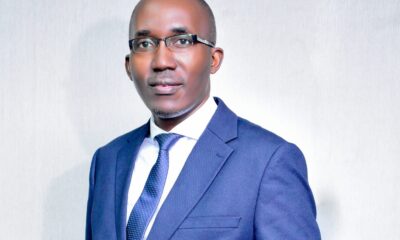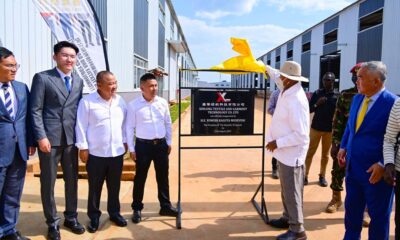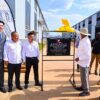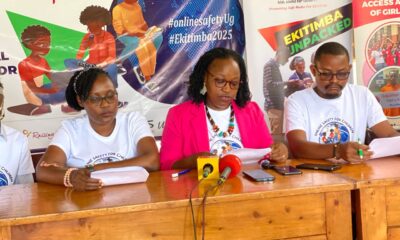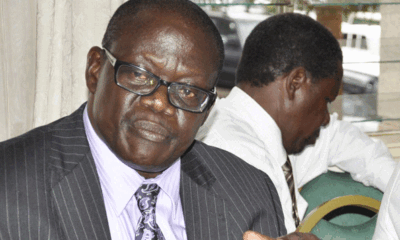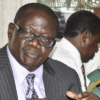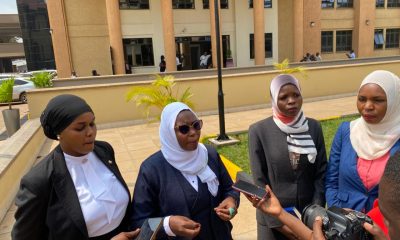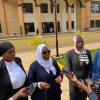Law
Digital Number Plates Under Fire: Citizen Petitions High Court Over “Fraudulent” Contractor
The controversial rollout of digital number plates and the collection of express traffic penalties have been brought to a grinding halt, at least temporarily, by a concerned citizen’s High Court petition. Kagingo Muhammad Brutus is seeking an interim injunction to suspend the operations of Joint Stock Company Global Security, the Russian firm contracted for the project, alleging it is a “fraudulent and non-existent” entity.
Kagingo’s application, heard on Wednesday by Deputy Registrar Simon Zirintusa Kintu, asserts that Global Security was struck off the register of companies by the Uganda Registration Services Bureau (URSB) for failing to file returns for over five years. This, he argues, means the company was not a legally registered entity when it was awarded the lucrative government contract.
Adding to his claims, Kagingo contends that Global Security was never legally gazetted before it began collecting traffic-related fees, a procedural requirement by law. He directly links the widespread public outcry over exorbitant traffic express penalties to the questionable legality of the company’s operations.
Further undermining public trust, Kagingo raises alarms about the security features of the digital number plates themselves, alleging they lack crucial elements necessary to safeguard public interest. He is now urging the High Court to issue immediate orders to halt both the issuance of the digital number plates and the collection of associated express penalties until the court definitively rules on the legality of Global Security’s operations.
The petition also includes serious accusations of tax evasion against Global Security. Kagingo claims that receipts issued for traffic penalties are not reflected on the Uganda Revenue Authority’s Electronic Fiscal Receipting and Invoicing System (EFRIS), suggesting a failure to remit Value Added Tax (VAT).
In a significant twist, Kagingo has also alleged a conflict of interest involving Attorney General Kiryowa Kiwanuka. Kiwanuka is also a partner at K&K Advocates, the law firm representing Global Security. Kagingo argues that this dual role — serving as the chief legal advisor to the government while simultaneously defending a company accused of defrauding citizens — undermines public trust.
During Wednesday’s hearing, Mark Muwonge, representing the Attorney General, alongside Richard Babigamba of K&K Advocates, raised preliminary objections. They are seeking the dismissal of Kagingo’s application, arguing that he improperly listed the two directors of Global Security, Russian nationals Ivan Shkardan and Damir Makhmutov, as individual respondents. The respondents maintain that Global Security is a legally registered entity capable of being sued in its own name, making the inclusion of its directors procedurally incorrect.
Registrar Zirintusa Kintu has instructed all parties to file and exchange their written submissions, which will form the basis of his ruling on the interim application. The decision is scheduled for July 10th, 2025.
The digital number plate project, a 10-year initiative, was first proposed by President Yoweri Museveni in 2018 as part of his ten-point security master plan to combat rising urban criminality. The proposal gained traction after a series of high-profile murders of Muslim clerics and security and political officials. On June 29, 2021, the Minister in charge of Security, Major General Jim Muhwezi, announced that Cabinet had approved the move to have all vehicles and motorcycles fitted with security tracking devices to monitor their location. These devices, he clarified, would be integrated into electronic number plates, with the cost to be incurred by every vehicle and motorcycle owner.
The contract for this ambitious project was awarded to the Russian company Global Systems LLC. Under the terms of the agreement, Global Systems LLC is set to receive 70 per cent of the revenue from penalties in the first two years, with the government retaining 30 per cent. The revenue split will gradually shift, with a 50-50 share in the fourth year, and the government taking 70 per cent from the sixth year onwards.
The Cabinet’s decision to implement the digital number plate system has faced considerable public and legal challenges, with prominent lawyers like Male Mabirizi and Isaac Ssemakadde (through his nonprofit organisation) previously challenging the initiative in the High Court. Kagingo’s latest petition adds another layer of legal scrutiny to an already contentious government initiative.
Comments




